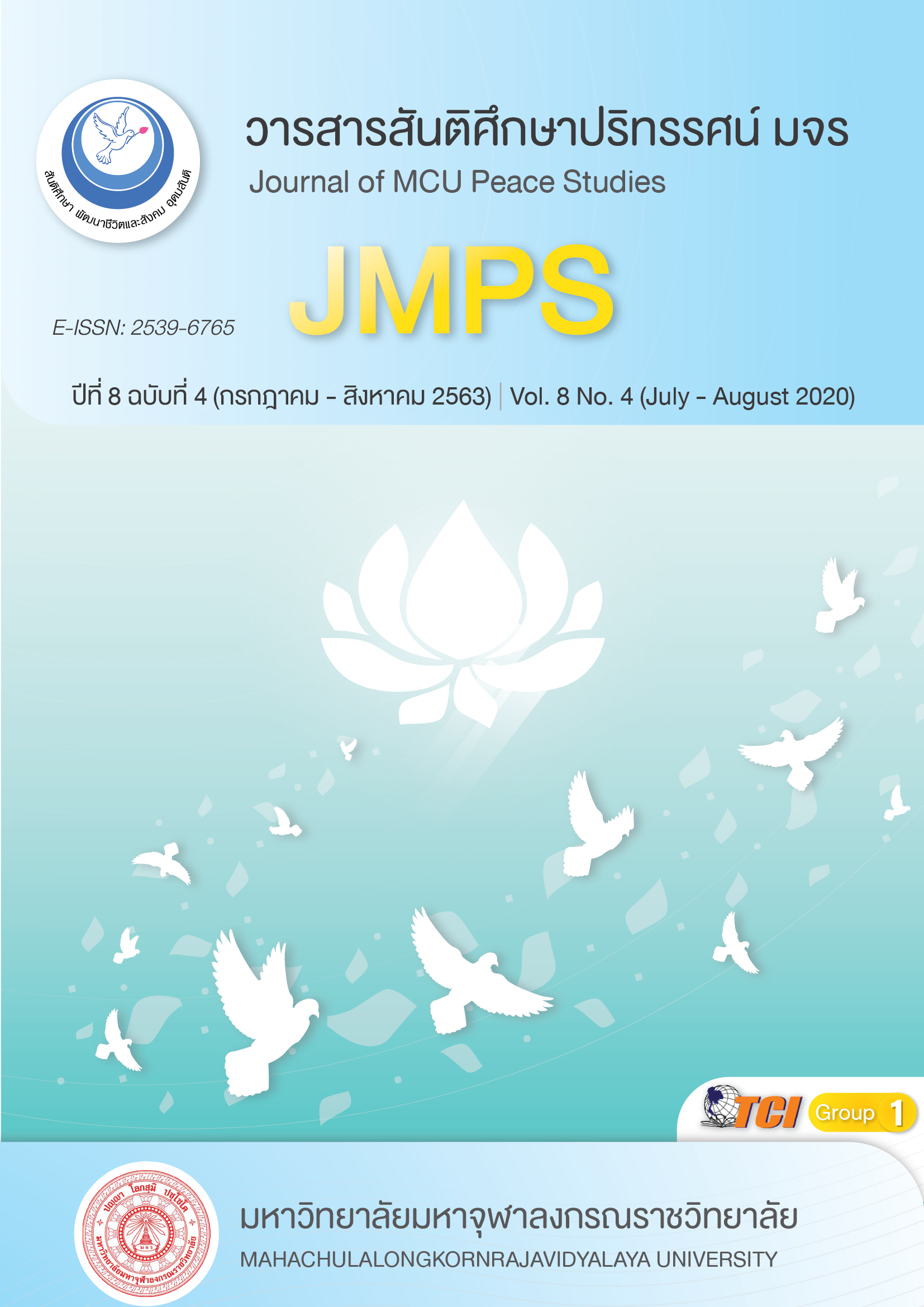Developing a Framework of Teaching Practice Competencies in School for Pre-service Teachers
Main Article Content
Abstract
The objectives of this research were to 1) develop the framework of teaching practice competencies in school for pre-service teachers 2) develop an assessment instrument of teaching practice competencies in school for pre-service teachers. The research process is divided into 2 phases. Phase 1: develops the competency framework from documentary studies and interviews with teaching experts who have received outstanding teaching awards. and Phase 2: develop an assessment instrument of teaching practice competencies in school for pre-service teachers and creating an evaluation form in behaviorally anchored rating scale (BARS). The sample groups are 2 groups: 1) Teachers with a national teaching award. The researcher selected 10 key informants according to the selection criteria specified by the snowball sampling method. 2) The 5-year pre-service teachers of the Faculty of Education, Loei Rajabhat University, by simple random sampling, a total of 40 samples. Data were analyzed by using content analysis and the reliability coefficient.
The findings were: 1) The teaching practice competencies in school for pre-service teacher’s framework consisted of 4 sub-competencies as follows: (1) understanding students' competency, (2) teaching management competency (3) student evaluation competency, and (4) research mind competency. 2) Evaluation form of teaching practice in schools for pre-service teachers. It consists of 5 levels and the criteria of each level are suitable by the quality level, there was the IOC index between 0.80-1.00 and the reliability between raters were at the level of .01 with Pearson's correlation coefficient (r) = .849.
Article Details
Views and opinions expressed in the articles published by The Journal of MCU Peace Studies, are of responsibility by such authors but not the editors and do not necessarily reflect those of the editors.
References
Asawasiphongthorn, K. (2007). State of training problems, teacher experience and development guidelines Experience in the teaching profession in a student's perspective Chandrakasem Rajabhat University. Journal of Khru Chantasan. 10(2), 64-70.
Darling - Hammond, L. (2000). Teacher quality and student achievement: A review of state policy evidence. Education Policy Analysis Archives. 8(1), 24-27.
Dejakup, P. (2008). Teacher competencies and guidelines for teacher development in a changing society. Bangkok: bureau of academic affairs and educational standards.
McClelland, D.C. (1975). A Competency model for human resource management specialists to be used in the delivery of the human resource management cycle. Boston: Mcber.
Office of Educational Administration Chiang Mai Rajabhat University. (2019). Teacher Profession Chiang Mai Rajabhat University. Retrieved February, 29, 2020 from http://tn-uriya.blogspot.com/p/1_14.html
Office of the Basic Education Commission. (2010). Teacher Competency Assessment Guide. Retrieved March, 24, 2020 from http://gpa.tmk.ac.th/teacher/capasity.pdf
Office of the Education Council. (2009). The research report on conditions, problems and solutions for teaching and learning that affect the quality of learner’s development in basic education. Bangkok: V.T.C. Communication.
Office of the Teacher Civil Service and Educational Personnel Commission. (2006). Rules and methods of development Teacher civil service to have or advance to academic standing, special expertise, and expertise. Bangkok: Office of the Teacher Civil Service and Educational Personnel Commission.
Thongchuea, S. & Sarataphan, N. (2014). Professional Experience Training Problems of Home Economics Education Student Teachers, Faculty of Education, Kasetsart University. Kasetsart Educational Review. 29(2), 193-201.
Thorndike, R. (2005). Measurement and Evaluation in Psychology and Education. (7th ed.). Upper Saddle River, NJ: Pearson Education.
Wanichthanom, R. (2005). Competency applied for human resource management. Official Journal. 50(2), 21-28.


